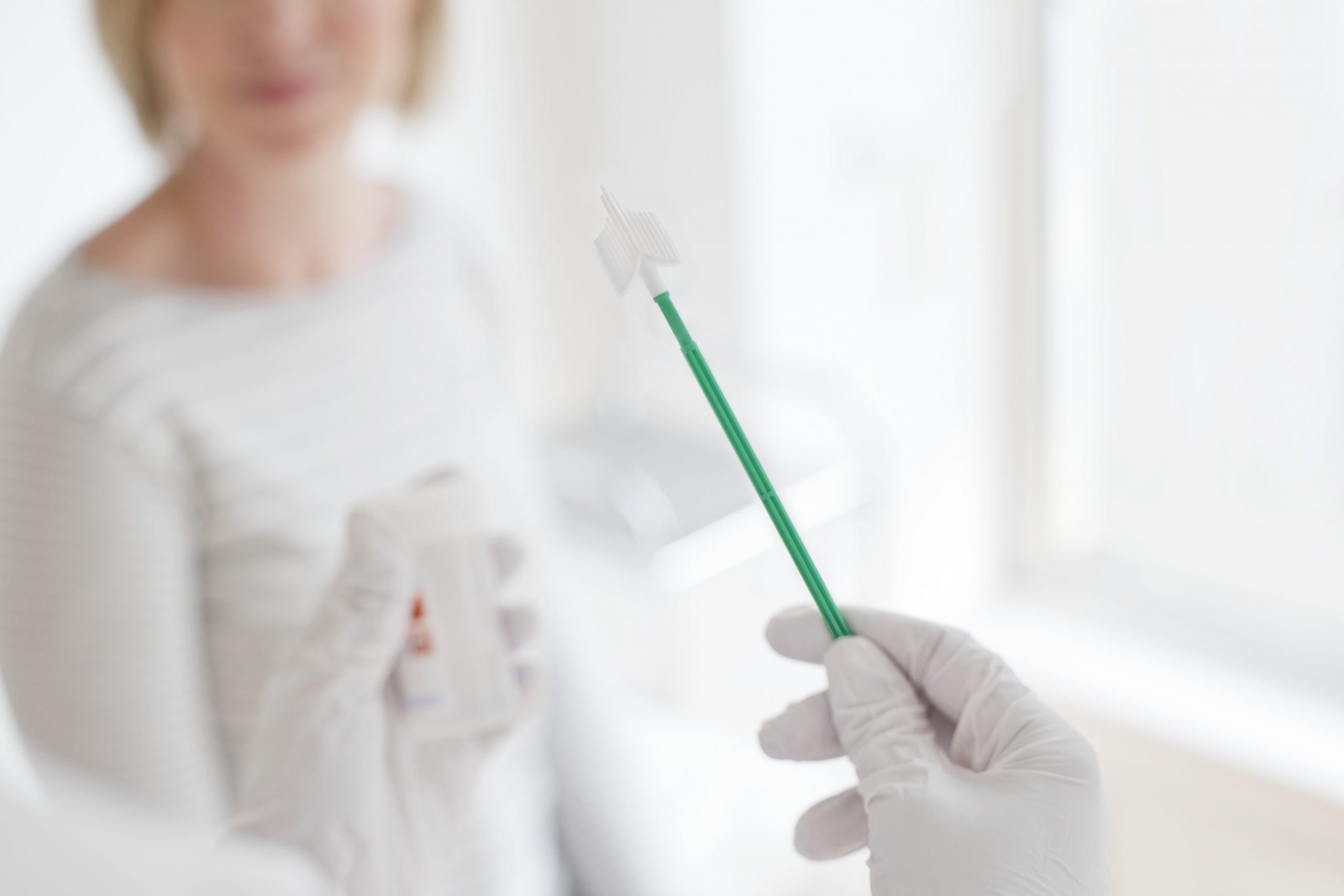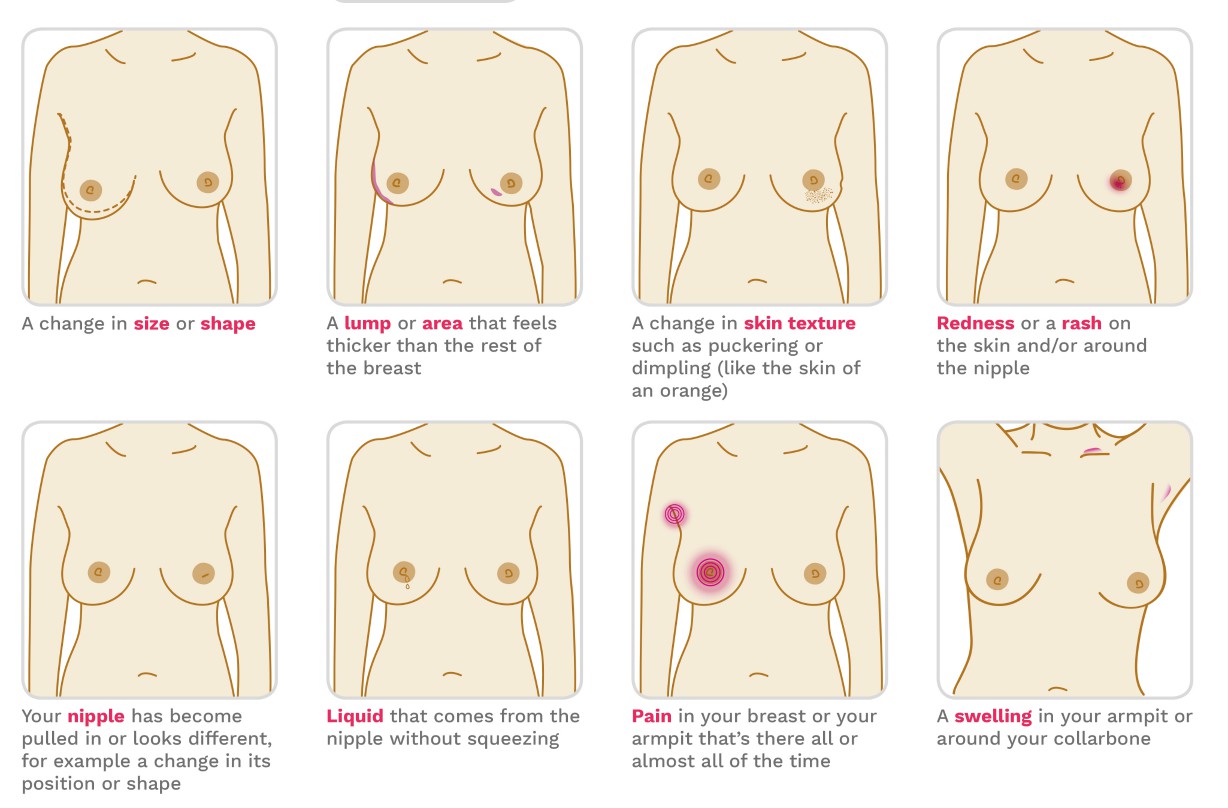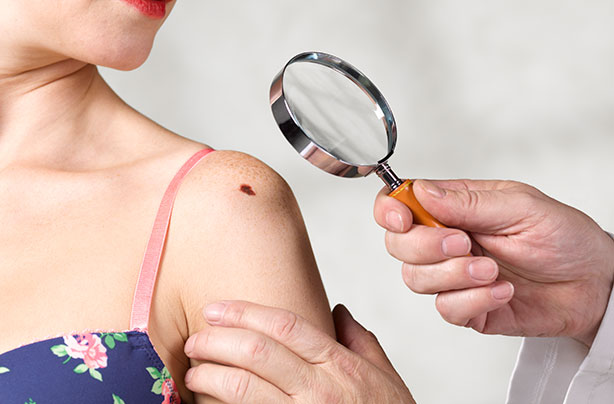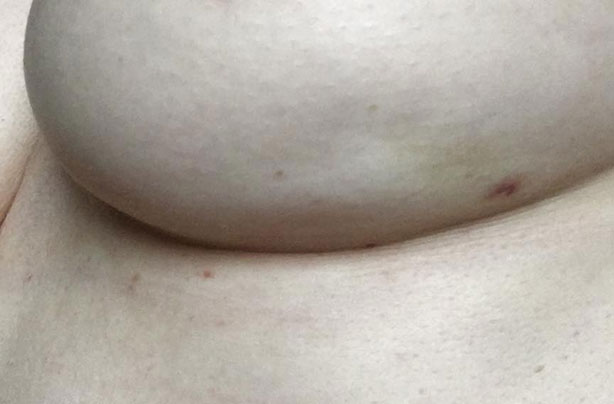Cervical cancer: symptoms and signs to look out for
The condition affects 3,000 women every year in the UK


The third week of January marks Cervical Cancer Prevention Week, which means it's an important time to understand how vital it is to attend smear tests, and to educate ourselves on the symptoms of the disease.
Cervical cancer affects around 3,000 women every year in the UK, and it can be hard to diagnose cervical cancer symptoms as many woman avoid going for their smear tests.
In fact, a recent survey, carried out by Jo's Cervical Cancer Trust, has suggested that in some areas in the UK, smear test attendance is as low as one in two among young women. While appointments dramatically increased following Jade Goody's cancer diagnosis in 2008, they've since gone back down.
The survey found that one of the reasons women choose to put off their smear tests is due to feelings of embarrassment. Gathering information from around 2,000 women aged 25-35, it found that as many as 915 had either delayed or never gone for screening.
When asked what caused them to delay or miss a test, 72 per cent said embarrassment, while 69 per cent said they felt uncomfortable with a stranger examining the genital area.
Dr Philippa Kaye, GP and ambassador of Jo's Cervical Cancer Trust, wants to reassure women that they needn't worry, or let their fears get in the way of going for a test, "We want women to feel comfortable talking to their nurse and asking questions. It’s not making a fuss and there are many ways to make the test easier. Please don’t let your fears stop you booking a test."
"We've seen and heard it all before and want to put your mind at ease if you have questions or concerns. Ask the things you want to know and remember you can say stop any time - it’s your test."
GoodtoKnow Newsletter
Parenting advice, hot topics, best buys and family finance tips delivered straight to your inbox.
Cervical cancer symptoms: what are they?
Cervical cancer symptoms aren't always obvious to spot, and there may even be none until it reaches an advanced stage, which is why regular cervical screening appointments are crucial.
Cervical cancer symptoms to look out for
- Unusual bleeding (any other time than your expected monthly period, even after menopause
- Menstrual bleeding that is longer and heavier than usual
- Pain and discomfort during sex or pelvic examinations
- Increased vaginal discharge
- Unpleasant smelling vaginal discharge

Advanced cervical cancer symptoms
These symptoms usually start to occur when the condition has progressed and spread out of your cervix.
- Constipation
- Blood in your urine
- Severe vaginal bleeding
- Urinary incontinence
- Bone pain
- Swelling of one of your legs
- Severe pain in your side or back caused by swelling in your kidneys
- Changes in bladder and bowel habits
- Loss of appetite
- Weight loss
- Lack of energy
Understanding the causes of cervical cancer
Potential causes of cervical cancer
- Having unprotected sex with multiple partners
- Smoking tobacco
- Living with High-Risk HPV
- Already infected HPV partner
- Several pregnancies
Cervical cancer and HPV
- Your risk of contracting HPV is increased considerably by having unprotected sex (i.e. having sex without a physical barrier, like a condom)
- Research suggests that around 80-90 per cent of cervical cancer cases occur as a result of a HPV infection
What should I do if I'm worried?
If you're worried about cervical cancer, the first thing you should do is speak to your doctor and not ignore any symptoms.
Going for regular smear tests could help diagnose the condition early - in fact, the NHS says 347 lives could be saved each year in England if all eligible women went for regular screenings.
At the moment, all women registered with a GP are invited for cervical screening every three years if they're aged 25 to 49; every five years aged 50 to 64.

Mariana is a lifestyle writer who has written for Goodto.com and My Imperfect Life. She joined the Goodto.com team as an intern after completing her journalism MA at City University. After six months spent writing about food, celebrity news, and family trends, Mariana left to write for Healthy Food magazine - but returned in 2017, to join the Future team once again. In her spare time, you’ll find Mariana in the kitchen cooking for her friends.
-
 Jade Goody's cancer legacy: This is the timeline of Jade's cervical cancer story
Jade Goody's cancer legacy: This is the timeline of Jade's cervical cancer storyA timeline of how Jade Goody's cancer spread
By Grace Walsh Published
-
 'Embarrassing' health symptoms men should never ignore
'Embarrassing' health symptoms men should never ignoreYou might not want to go to your GP, but you should...
By Amy Hunt Published
-
 Do you know how to check your breasts for breast cancer?
Do you know how to check your breasts for breast cancer?These six tips could save your life
By Sibelle Mehmet Published
-
 Bowel cancer symptoms: What you need to know
Bowel cancer symptoms: What you need to knowMore than 2,400 people under 50 are diagnosed each year in the UK
By Amy Hunt Published
-
 Skin cancer symptoms: What does skin cancer look like?
Skin cancer symptoms: What does skin cancer look like?Most of us have at least some moles - but how do you know when you should be worried about one? Use our picture guide to check your moles aren't showing signs of skin cancer
By Sarah Finley Published
-
 Ovarian cancer symptoms: What every woman should know
Ovarian cancer symptoms: What every woman should knowOnly 3% of women feel confident spotting ovarian cancer symptoms
By Katie McPhillimy Published
-
 ‘Blink and you’d miss it’ Woman shares picture of lesser-known breast cancer symptom
‘Blink and you’d miss it’ Woman shares picture of lesser-known breast cancer symptom'I only spotted it thanks to another post shared by an amazing friend'
By GoodtoKnow Published
-
 How to talk to your children about cancer
How to talk to your children about cancerThis week is Cancer Talk Week. Cancer isn't an easy topic to talk about with the people you love, but Macmillan Cancer Support can help
By Natalie Cornish Last updated